


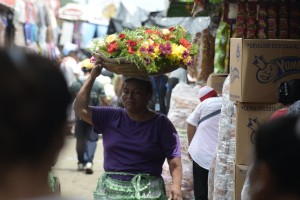
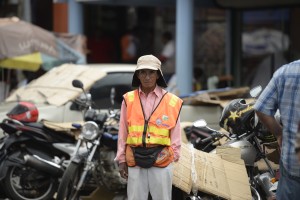
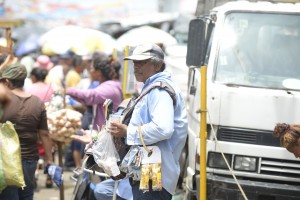







Trinidad & Tobago/ 28 ABR, 2016/ El Nodal.com
Resumen: El gobierno de Trinidad y Tobago dice que no va a entrar en cualquier programa de ajuste estructural con el Fondo Monetario Internacional ( FMI ) , pero defendió su decisión de contar con asesores del FMI y el Banco Mundial lo que ayudará a hacer frente a la eactivación de la economía de las islas gemelas que conforman la República. Legisladores de la oposición han criticado al gobierno tras ocho meses de tratar de engañar a la población de que se llegaría a un acuerdo con la institución financiera con sede en Washington debido al descenso significativo de los ingresos en el país, como consecuencia de la caída de los precios del petróleo en el Mercado mundial.
The Trinidad and Tobago government says it will not enter into any structural adjustment program with the International Monetary Fund (IMF), but defended its decision to have advisors from the IMF and the World Bank assist it to deal with reviving the economy of the oil-rich, twin-island republic.
Finance Minister, Colm Imbert, speaking in Parliament, on yesterday, said “we are not in any standby arrangement and, under this PNM (People’s National Movement) administration, under the leadership of Dr. Keith Christopher Rowley, there will be no standby arrangement with the IMF.”
Opposition legislators have criticised the eight month old government of seeking to hoodwink the population and enter into an agreement with the Washington-based financial institution, as the country deals with a significant decline in revenue, as a result of the drop in oil prices on the world market.
Last weekend, the leader of the Movement for Social Justice (MSJ), David Abdula, described as “an amazing indication of the abject failure” the decision of the government to seek the assistance of the two financial institutions in dealing with the sluggish local economy.
“It’s an indication that he’s (Imbert) unsure of what he’s doing and if that is an indication of that, then that contributes to the lack of confidence, generally, in the economy,” Abdulah said.
Last week, Imbert told reporters that teams from the two Washington-based financial institutions were here, assisting the Rowley administration saying “we have made arrangements for experts, primarily from the World Bank but also from the IMF to give us advice on a number of pressing matters.
“The first one would be an appropriate oil and gas fiscal regime in the current environment of low oil prices and declining production in our oil and gas fields.
“One of the things we need to do at this time, with low oil prices, is to model a fiscal regime that would achieve two objectives which are quite often contradictory and one is to maximise revenue for the government.”
Imbert, who led a delegation to Washington for talks with the financial institutions there, said the new regime would also be to “provide incentives to oil companies”.
Imbert defended the decision to establish the new regime, telling legislators “multi-national companies charge expenses in their head office which are unreasonable and thereby deprive Trinidad and Tobago of revenue.
“So this much reviled and hated IMF…will help this country to design a competitive oil and tax regime, which will boost revenue for Trinidad and Tobago and assist us with transfer pricing, which will allow us to earn as much revenue as we can from the multi-nationals.”
He said the IMF assists countries all over the world and accused the opposition of wanting to “frighten people for absolutely no reason”.
Imbert told legislators that regarding the composition of the Economic Advisory Board “we made sure to bring as many diverse views as possible because the PNM is all inclusive.
“We have people on the right, people on the left, people in the middle, we have trade unionists, we have businessmen, we have academics, all together in one creative beautiful mixture.”
Earlier this month, the Central Bank of Trinidad and Tobago (CBTT) said the effects of depressed oil prices and global growth uncertainties will weigh on the Trinidad and Tobago economy in 2016.
In its latest economic bulletin released here, the CBTT said that domestic real gross domestic product (GDP) is projected to contract by close to two per cent, as a result of forecast declines in both the energy and non-energy sectors.
It said year-on-year inflation is forecast to settle around its 10-year average of six per cent, given the impact of the widening of the value added tax (VAT) base on food prices while the unemployment rate is expected to rise marginally to 4.1 per cent.
Meanwhile, dismissed Central Bank of Trinidad and Tobago governor, Jwala Rambarran, today, said he expects there to be more layoffs as the country deals with the downturn in economic growth.
“We see every week layoffs…further retrenchment…so the job losses are happening,” he said, telling television viewers that “strange enough, that is happening in a period where you have had significant slack in the labour market.
“Our labour market is an area that needs significant reform,” he said.
Fuente: Source: Trinidad y Tobago advierte que no llevara a cabo el plan de ajuste elaborado por el FMI
PRIDE
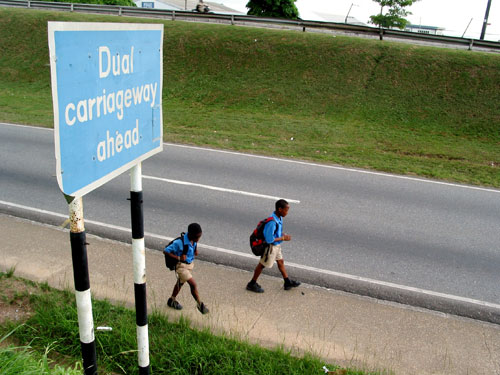
Trinidad y Tobago, Abril 2016, Autor: globalvoices Fuente: www.es.globalvoices.org
Una profesora de escuela secundaria se ha convertido en el foco de las frustraciones del sistema educativo de Trinidad y Tobago, después de que un audio de ella denigrando a los homosexuales y a los ateos, y acusando a un estudiante de traficar droga fue compartido publicamente en Facebook.
La profesora, Nadira Nandlal, mantenía una debate de seguimiento con su grupo en el Colegio Naparima de varones sobre los comentarios públicos que había realizado una semana antes, durante una asamblea escolar, vilipendiando a los homosexuales dentro de la escuela y haciendo referencia a un estudiante en particular. Con el conocimiento de que algunos de sus colegas la criticaron por sus dichos, ella mantuvo su postura y fue más arriesgada al decir que si le dieran una pistola, ella “arreglaría el problema” de los homosexuales y ateos. En la grabación, la cual podría tener implicancias difamatorias, también identificó a un estudiante, quien según ella alega, está en el tráfico de drogas.
Después que la grabación, considerada como “una diatriba”, se viralizara; la escuelaremitió el asunto al Ministerio de Educación. Hasta ahora, ninguna acción definitiva ha sido tomada en contra de Nandlal, aunque parece que ella no se presentó a trabajar desde el incidente.
Por su parte, Nandlal justificó su postura como ninguna otra cosa más que un intenso compromiso para proteger a sus jóvenes e impresionables alumnos.
Las redes sociales mientras tanto se enfurecieron. Estructurada en un un sistema que se focaliza en pasar un un examen de aptitud para entrar a la escuela secundaria, la educación en Trinidad y Tobago está enfrentándose con un rendimiento académico pobre, el ausentismo docente, la violencia y la falta de disciplina.
Para muchos, la grabación parecía ejemplificar algunos de estos factores. Respondiendo al hilo de comentarios registrados en Facebook, Jason Dookeran dijo:
Información de la imagen: Dos estudiantes en camino a casa desde la escuela en Trinidad y Tobago. Foto de Georgia Popplewell, usada con licencia de CC BY-NC-ND 2.0.
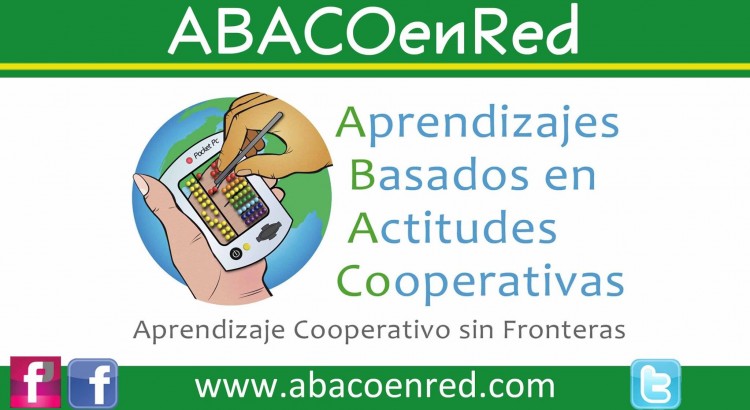
ABACOenRed: Dos diplomados (100% virtuales) inician el 14 de marzo
(1) Diplomado “Levantamiento de datos y mediación pedagógica en una sistematización de experiencias”
Este diplomado ha sido preparado y será facilitado por nuestro colega de Guatemala Carlos de León Andrade quien tiene mucha experiencia en procesos de sistematización de experiencias. Al pre-inscribirte, el facilitador Carlos te enviará en menos de 24 horas un documento con toda la información.
Los temas que se abordarán son: 1.Rituales de interacción comunitaria; 2.La relación; 3.Recorridos comunitarios; 4.El grupo focal; 5.Entrevista en profundidad; 6.Dejar hablar la experiencia y 7.La mediación pedagógica y sus tratamientos.
Si estás interesada/o realiza tu pre-inscripción AQUÍ.
(2) Diplomado en Facilitación de Procesos de Aprendizajes
Es muy importante la interacción entre todas/os las/os participantes a través de un escenario virtual de aprendizaje para que juntas/os construyamos una relación de confianza y contribuyamos a desarrollar una actitud cooperativa, contando con y respetando la diversidad en opiniones y puntos de vista.
En el documento adjunto podrás leer los requisitos de participación: InformaciónGeneralDI-FACIL10
Facilitadora: MSc. Carla Yeneris Caballero, Con acompañamiento puntual del Dr.C. Herman Van de Velde
Para realizar su pre-inscripción al diplomado, la puedes hacer AQUÍ